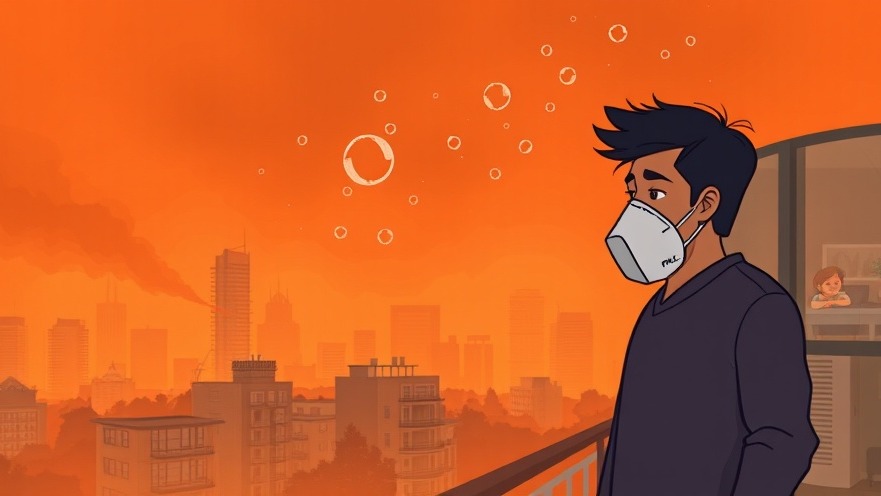
Understanding the Long-Term Risks of Breathing Wildfire Smoke
As wildfires become an increasingly common occurrence across the United States, especially in regions like California, many homeowners and eco-conscious citizens are rightfully concerned about the potential long-term health implications of wildfire smoke. Emerging research sheds light on these risks, revealing that inhalation of smoke could have significant consequences for both personal and public health.
The Health Risks of Wildfire Smoke
Initial studies reveal a worrying pattern: short-term exposure to wildfire smoke is associated with an uptick in emergency room visits for health issues such as heart arrhythmias, heart attacks, and strokes, especially after major fire events. According to Dr. Mary Johnson, principal research scientist at Harvard T.H. Chan School of Public Health, hospital visits increased 16-fold after the January wildfires in California. However, as the climate crisis fuels the frequency and intensity of such fires, the long-term effects begin to loom larger.
For California residents, especially homeowners aged 30-65, this isn't just a fleeting concern. As noted in the Yale School of Public Health study, long-term exposure to PM2.5—fine particles present in wildfire smoke—has been linked to approximately 11,415 non-accidental deaths annually in the contiguous U.S., with over 4,500 attributed to cardiovascular disease alone.
Preventative Measures and Future Outlook
For eco-conscious homeowners, being proactive is key. Effective measures include reduced indoor air pollution—like using high-quality air filters—and advocating for better building regulations that enhance air quality during wildfire season. Furthermore, the recent collaboration between Harvard and UCLA in the LA Fire Study aims to investigate the long-term health impacts of wildfire smoke in greater detail. This comprehensive ten-year study will examine pollutants and their long-term effects on respiratory, cardiovascular, and mental health.
Navigating Eco-Anxiety and Community Impact
Eco-anxiety is a real and growing concern as people grapple with the ramifications of climate change. Residents are urged to remain informed about air quality updates and to participate in community efforts focused on mitigation strategies for wildfire risks. Programs that promote resilience through community engagement can provide emotional and behavioral support, helping to mitigate the mental health ramifications associated with the loss of homes and communities due to wildfires.
Conclusion: A Call to Action for Residents
The increasing threat of wildfires and their long-term health implications is undeniable. Homeowners must prioritize awareness and prevention, while government and health organizations should invest in robust research to address these challenges. By staying informed, supporting local initiatives, and advocating for health-focused policies, we can collectively tackle the fallout from wildfire smoke and enhance the well-being of our communities.
 Add Row
Add Row  Add
Add 



 Add Row
Add Row  Add
Add 
Write A Comment